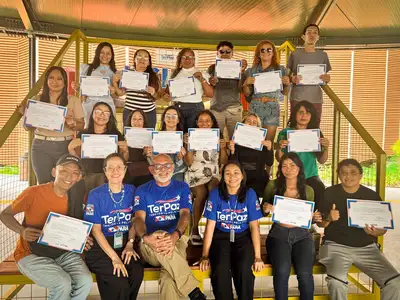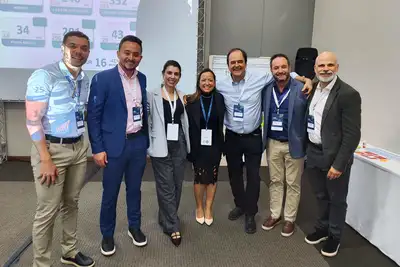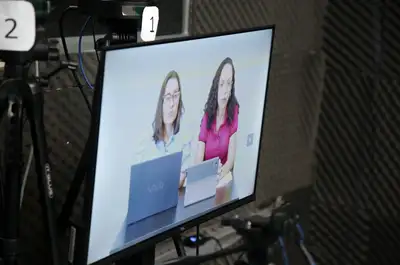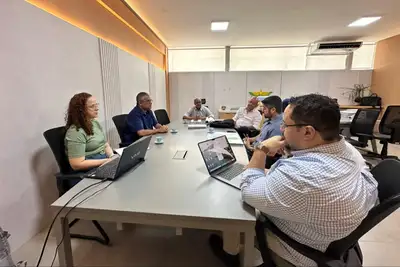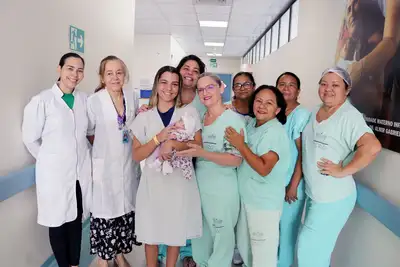Hospital de Clínicas discusses innovation and humanized care at Pharmaceutical Journey
Event highlights the use of Artificial Intelligence, evidence-based practices, and multiprofessional integration in the role of hospital pharmacists
With discussions on innovation, humanized care, and strengthening the role within the Unified Health System (SUS), the Gaspar Vianna Clinical Hospital (HC) in Belém held the third edition of the Pharmaceutical Journey. The event, held on Monday (5), brought together professionals, students, and specialists in the health field for an intense program of lectures, debates, and experience sharing.
Aimed at qualifying hospital pharmaceutical practice, the meeting highlighted current and challenging topics such as Artificial Intelligence in pharmacy routines, institutional innovation strategies, and rational drug use, reinforcing the commitment to patient safety and the appreciation of pharmacists in the context of public health.
According to Úrsula Araújo, coordinator of the Pharmacy Service (Sefar) at HC, the main objective of the Journey is to promote scientific updating, experience sharing, and strengthening the role of pharmacists in SUS (Unified Health System). “The event strengthens the pharmacist's role by providing reflections on their role in comprehensive patient care, encouraging the adoption of evidence-based practices, rational drug use, and multiprofessional integration,” she explained.
The coordinator also emphasized that the Journey was a formative space that broadens professionals' perspectives on the challenges and innovations in hospital pharmaceutical practice. “In addition to promoting experience exchanges and technical updates, it directly contributes to the continuous improvement of the services provided at HC. This strengthens the sense of belonging and appreciation of the team, positively reflecting on motivation, quality of care, and patient safety,” she added.
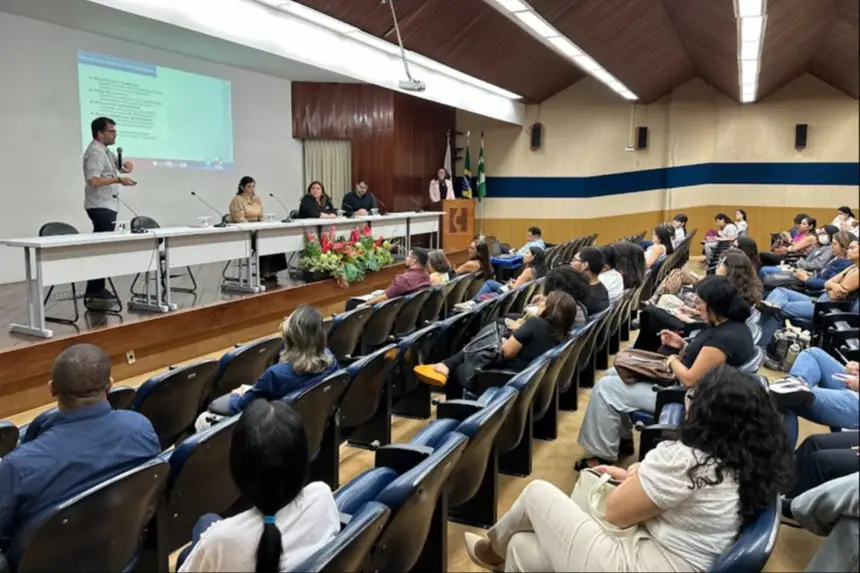
Among the most relevant topics of this edition, the use of Artificial Intelligence, strategies for managing the culture of innovation in hospital pharmacies, and the rational use of medications focusing on therapeutic adherence, as demonstrated in the report on MedBag stood out. Experiences with clinical pharmacy aimed at critically ill patients and the management of drug incompatibility in neonatology were also discussed, reinforcing the commitment to excellence in care and patient safety.
People Management - Pharmacist Luiz Fernando de Mendonça participated in the event as a guest in the talk show about pharmaceutical innovations. “When we talk about innovation, we immediately think of technology, but it also involves processes and, mainly, people. In 2004, 2005, talking about information systems and electronic dispensaries was utopia. Today, they are already a reality. The processes are better structured with accreditations, but we need to pay more attention to people management. How are we preparing these professionals, identifying leaders, and enhancing talents? It is this professional who will drive the adoption of standards, processes, and technological advancement within hospitals,” he stated.
Pharmacist Carolina Lobo also participated in the Journey and reinforced the importance of experience sharing. “I found it a very important and interesting moment, with a combination of current lectures and successful experiences, which I consider fundamental. As a professional, absorbing these experiences from colleagues in different areas adds a lot to our practice and our curriculum. It is inspiring to hear exceptional professionals from our field and to reflect on these trajectories,” she explained.
For Cintia Alves, pharmacist and resident at the João Barros de Barreto University Hospital (HUJBB), the Journey also plays an essential role in the training of early-career professionals. “It is a very important work that brings relevant experiences, both in the professional and academic areas. The resident is an academic professional and, therefore, brings an expanded vision, fed by various areas and by highly qualified professionals who are here today. They bring us innovative ideas that we can take and apply in our daily lives,” she emphasized.
Text: Kelly Barros - Ascom/HC


